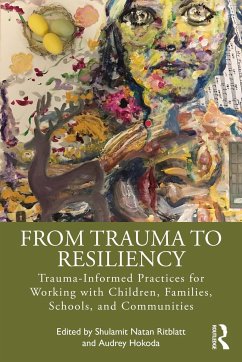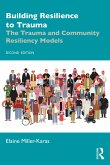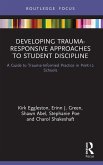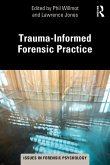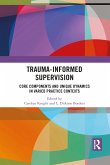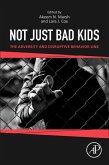From Trauma to Resiliency integrates research and practice of trauma-informed care, reviewing the neuroscience of trauma and highlighting relationship-based interventions for diverse populations that have faced multiple traumas. Chapters explore the experiences of oppressed groups that include survivors of abuse, war, poverty, Indigenous youth, Middle Eastern refugee mothers, individuals who identify as sexual and/or gender minorities (SGM), and children and youth involved in child welfare, foster care, and juvenile justice systems. In each chapter, contributors provide strengths-based, trauma-informed strategies that can be used in clinical settings, school-based programs, and in urban communities where food insecurity, limited access to health services, and community violence are prevalent. Professionals and students in counseling, social work, psychology, child welfare, education, and other programs will come away from the book with culturally affirming, trauma-informed interventions and models of care that promote well-being and resilience.
"Starting with the focus on families and importance of attachment-based practices, this book takes an expansive perspective on trauma and resiliency, presenting research and clinical application, as well as recommendations for professionals in a wide variety of sectors, including education, child welfare, juvenile justice, and public health. Identifying the intergenerational, culturally focused, community-based work that systems must embrace, this book will be a guide to many family-serving professionals for years to come." Julie Beem, executive director, Attachment & Trauma Network, Inc.
"This highly informative book integrates research and practice and provides specific examples of applied interventions and prevention programs addressing traumas." Bahira Trask, PhD, professor and chair, Department of Human Development and Family Studies, University of Delaware
"Providing a broad system perspective on trauma related to individuals, families, schools, and communities through leaders in the field, this book highlights cutting-edge trauma-responsive practices and provides insights on transforming systems to better support cultures of care, hope and healing." Dana R. Brown, ACEs science statewide facilitator, Learn4Life, and organizational liaison, PACEs Connection
"The lessons presented in this book will serve as an invaluable resource for all scholars and practitioners that treat and work with vulnerable individuals, families, communities, and schools. This couldn't be a more timely book." Katia Paz Goldfarb, PhD, associate provost for Hispanic Initiatives and International Programs and professor of family science and human development, Montclair State University
"Many of us have been waiting for this book for years. Diverse populations are often unseen in the research and in the practice literature. Yet, oppression, social injustice, poverty, and lack of privilege negatively impacts these communities' access to high-quality and culturally affirming trauma-informed care. Complex trauma requires effective integrated-systems treatment, and so the authors have used a transdisciplinary approach. This text is a must for practitioners who want to hold a truly trauma-informed lens." Barbara Stroud, PhD, infant mental health specialist, founder and past president, California Association for Infant Mental Health
"This highly informative book integrates research and practice and provides specific examples of applied interventions and prevention programs addressing traumas." Bahira Trask, PhD, professor and chair, Department of Human Development and Family Studies, University of Delaware
"Providing a broad system perspective on trauma related to individuals, families, schools, and communities through leaders in the field, this book highlights cutting-edge trauma-responsive practices and provides insights on transforming systems to better support cultures of care, hope and healing." Dana R. Brown, ACEs science statewide facilitator, Learn4Life, and organizational liaison, PACEs Connection
"The lessons presented in this book will serve as an invaluable resource for all scholars and practitioners that treat and work with vulnerable individuals, families, communities, and schools. This couldn't be a more timely book." Katia Paz Goldfarb, PhD, associate provost for Hispanic Initiatives and International Programs and professor of family science and human development, Montclair State University
"Many of us have been waiting for this book for years. Diverse populations are often unseen in the research and in the practice literature. Yet, oppression, social injustice, poverty, and lack of privilege negatively impacts these communities' access to high-quality and culturally affirming trauma-informed care. Complex trauma requires effective integrated-systems treatment, and so the authors have used a transdisciplinary approach. This text is a must for practitioners who want to hold a truly trauma-informed lens." Barbara Stroud, PhD, infant mental health specialist, founder and past president, California Association for Infant Mental Health

